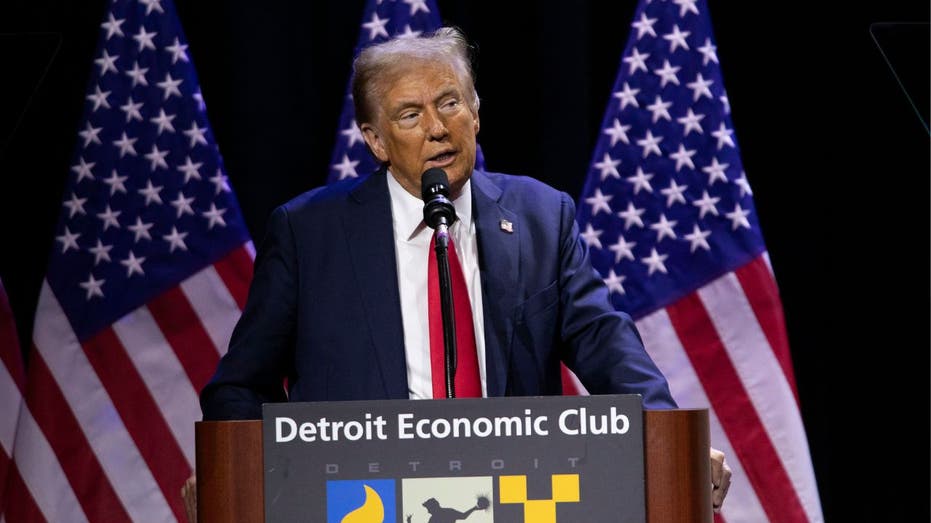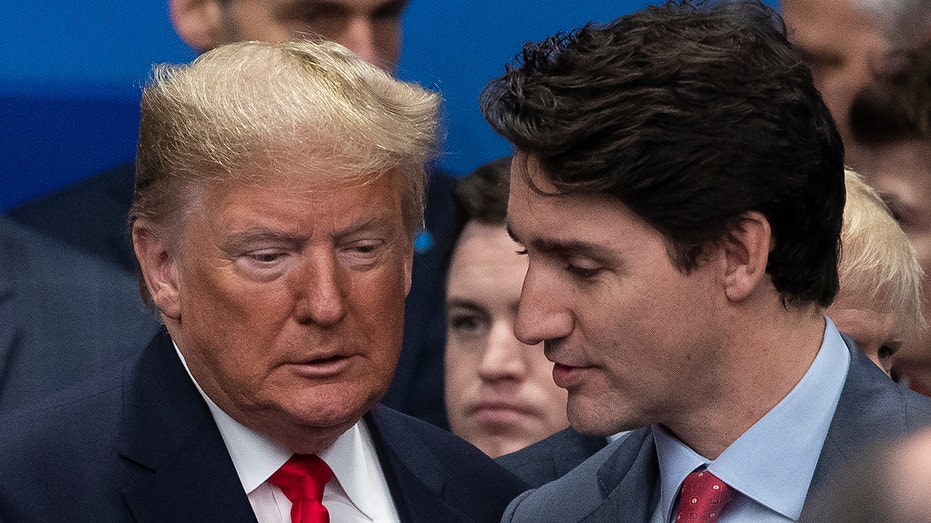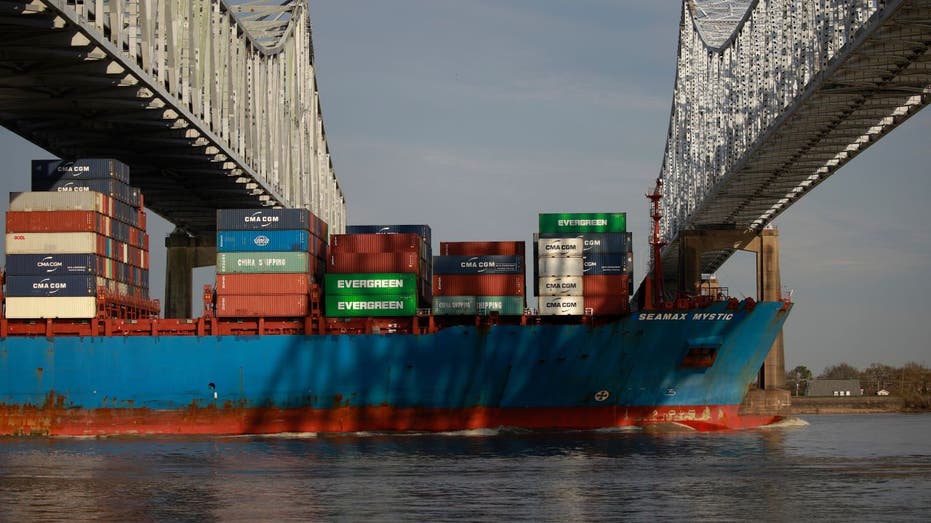Trump's 'External Revenue Service' will collect from importers, not 'foreign sources'
One expert said, 'The agency name is more branding than substance'
Former CBO director says tariff impact would cause Canada's economy to enter a recession
Former Congressional Budget Office director Doug Holtz Eakin explains the impact that tariffs would have on the Canadian economy and shares his thoughts on President-elect Trump's agenda and the House speakership vote.
President-elect Trump on Tuesday announced plans to create a new "External Revenue Service" that would be tasked with collecting revenue from tariffs, but economists are pushing back and noting that U.S. importers bear the brunt of the cost of tariffs rather than firms overseas.
"For far too long, we have relied on taxing our Great People using the Internal Revenue Service (IRS). Through soft and pathetically weak Trade agreements, the American Economy has delivered growth and prosperity to the World, while taxing ourselves. It is time for that to change," Trump wrote in a post on the Truth Social platform.
"I am today announcing that I will create the EXTERNAL REVENUE SERVICE to collect our Tariffs, Duties, and all Revenue that come from Foreign sources. We will begin charging those that make money off of us with Trade, and they will start paying, FINALLY, their fair share. January 20, 2025, will be the birth day of the External Revenue Service," he added.
Tariffs are taxes on imports, which in most cases are paid by the U.S.-based importer to an existing federal agency, U.S. Customs and Border Protection (CBP). That dynamic has prompted pushback from economists who say the name of the proposed External Revenue Service represents an effort to obscure who pays for tariffs.
TRUMP DENIES REPORT ABOUT CHANGES TO TARIFF PLANS

President-elect Trump said he plans to create the "External Revenue Service" to collect tariffs paid by U.S. importers. (Bill Pugliano/Getty Images / Getty Images)
"The president-elect may try marketing his higher tariff agenda as an external tax, but messaging does not change that higher tariffs will be paid by the people and businesses in the United States who import goods," Erica York, vice president of the Tax Foundation, told FOX Business.
"Tariffs are not external revenue; they are taxes on U.S. importers that shrink both the U.S. economy and U.S. incomes. Higher tariffs will create a drag on the U.S. economy and will threaten to offset the benefits of tax cuts elsewhere, they should not be relied upon as a major source of tax revenue," York explained.
TRUMP'S PROPOSED TARIFFS: WHAT CONSUMER PRODUCTS COULD BE IMPACTED?

President-elect Trump, seen with Canadian Prime Minister Justin Trudeau, who recently announced his resignation, campaigned on imposing tariffs on U.S. trading partners. (Dan Kitwood/Getty Images / Getty Images)
Scott Lincicome, vice president of general economics at the Cato Institute, expressed a similar sentiment and told FOX Business: "The agency name is more branding than substance — and misleading branding at that. In the vast majority of cases, parties in the United States — not foreign ('external') sources — pay U.S. tariffs and, as confirmed by several recent studies, bear their economic incidence, too."
"Declaring tariff revenue 'external' would therefore be just as misleading as, say, declaring domestic sales tax revenue 'external' because it happened to apply to a foreign-made good sold at your local Walmart. At the end of the day, Trump could call it the 'Foreigners Pay the Tariffs Agency,' and it still wouldn't change the fact that Americans really are," Lincicome said.
GOLDMAN SACHS: TRUMP TAX CUTS, DEREGULATION WILL BOOST GROWTH; TARIFFS COULD BE A DRAG

Tariffs are paid by importers to U.S. Customs and Border Protection at the point of entry into the country in most cases. (Luke Sharrett/Bloomberg via Getty Images / Getty Images)
During his successful campaign to return to the White House, Trump touted plans to impose an across-the-board tariff of 10% or 20% — as well as a larger tariff of 60% on goods imported from China.
He also threatened to impose a 25% tariff on goods from Canada and Mexico, which are both parties to the U.S.-Mexico-Canada Agreement (USMCA) — a free trade agreement Trump negotiated during his first term as a successor to the North American Free Trade Agreement (NAFTA).
His campaign platform included income from tariffs as a source of tax revenue to offset proposed tax cuts and spending plans.
GET FOX BUSINESS ON THE GO BY CLICKING HERE
Trump is set to be inaugurated for his second term as president on Monday. His transition team has signaled that he plans to sign a slate of executive orders upon taking office, as the new presidential administration often does.
Trump's social media post suggests the External Revenue Service will be created on Inauguration Day, though details on whether that will be done via executive order and how the new agency plans to operate are unclear at this time.




















